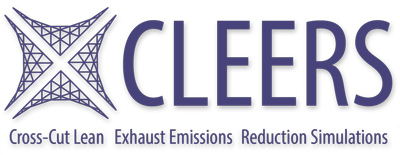System Emission Reduction Analysis
Matthew Thornton, National Renewable Energy Laboratory
The mission of the Department of Energy’s (DOE’s) Advanced Petroleum-Based Fuels (APBF) Program is to explore and define the role of advanced petroleum and non-petroleum fuel constituents to enable light-duty vehicles and heavy-duty engines to maintain continuous improvement in engine efficiency and durability while meeting current and planned emission standards and additional potential constraints (e.g. toxins, ultrafine particulate matter (PM), greenhouse gases).
DOE’s Offices of Advanced Automotive Technologies (OAAT) and Heavy Vehicle Technologies (OHVT) have developed the APBF Program Multi-Year Program Plan (MYPP) to guide research and development towards accomplishing this mission. The MYPP outlines research and development needs for advanced petroleum-based fuels for compression-ignition, direct-injection (CIDI) engines for on-road vehicles.
The MYPP calls for the development and validation of predictive models that would be used to set emissions targets for the program, and to develop pathways for realizing those targets.
The National Renewable Energy Laboratory (NREL) has worked with the Department of Energy to launch a Systems Emissions Reduction (SER) analysis activity. The purpose of this project is to develop and use systems analysis tools that will support execution of the APBF MYPP. NREL is evaluating the effects of fuel properties on engine emissions and emission control system performance for three vehicle platforms.

